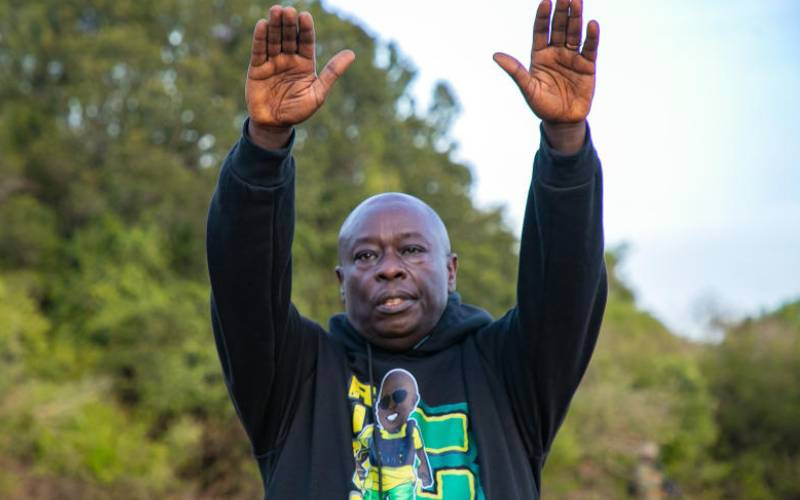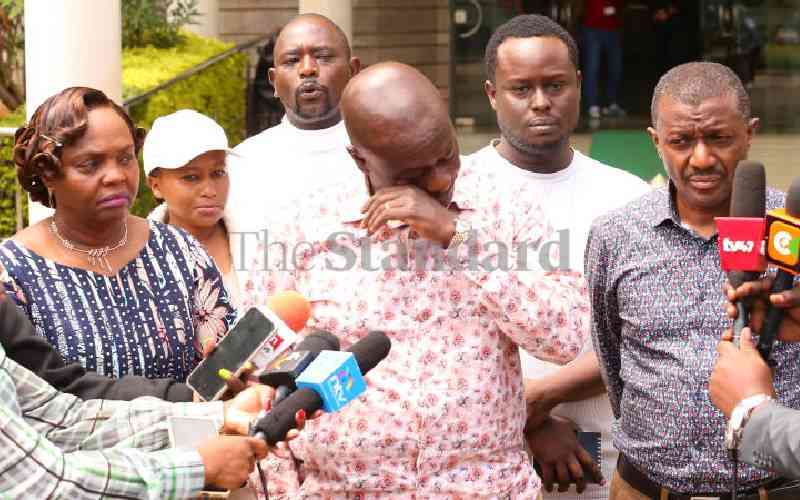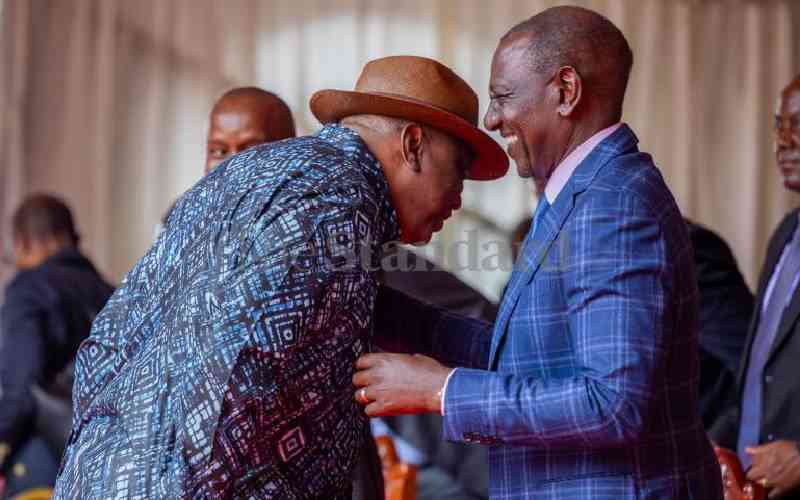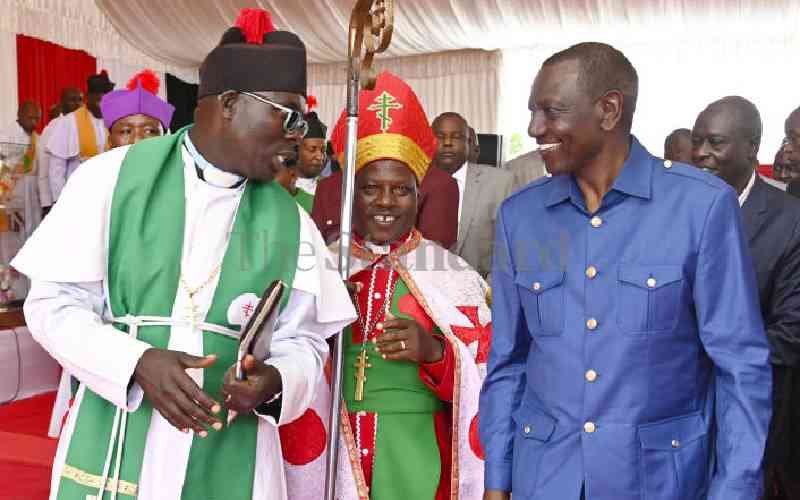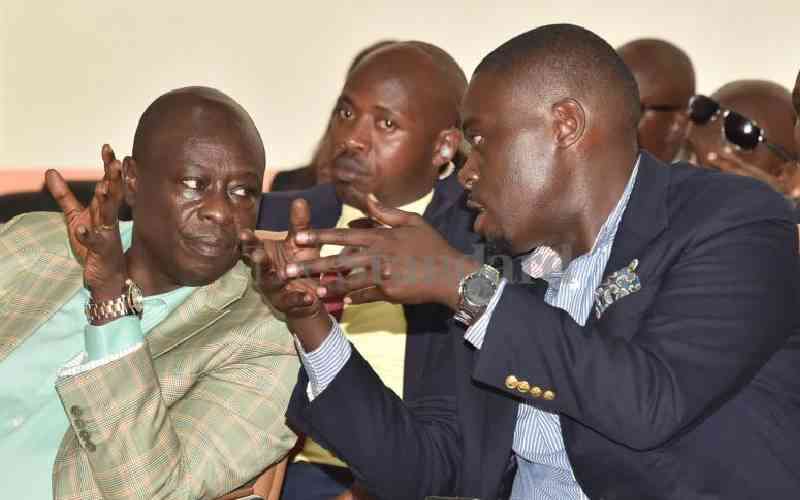The common denominator for men and women of my generation, born before 1980, was that no one was above a good beating. Our parents were from the school of hard knocks. They swore by the words: “Spare the rod and spoil the child.”
I grew up knowing my parents' wrath came from a place of good intentions. The punishment was structured and one even got to fetch the cane that would be used to inflict pain and deliver a lesson. When disciplining was over, the recurring question would be “what did you learn?” That is what good parenting entailed.
In a corrupt world, parents from socially marginalised neighbourhoods attempt to shield and teach their children about the consequences of delinquency and lawlessness. They teach them how to avoid bad influence and bad company and instill the importance of living an upright life. But even with all these concerns, there comes a time when they become victims of circumstances beyond their control.
When election season arrives, the best mothers can do is plead with their boys to stay indoors. Do not protest and sometimes, that is hard enough. In the aftermath of the August 8 election, a day after a police operation on August 12 in Mathare’s 4C area, a friend invited me to witness a taste of their reality.
My friend JJ is a community mobiliser who works as a first responder dealing with social justice and human rights issues. We walked from house to house of the victims whose privacy had been breached and violated. Residents who were ethnically profiled and subjected to collective punishment over a political contest they really had no stake in.
One particular encounter stood out during this tour. As we approached the Councillor Ochola Road that suffered the brunt of police brutality, we found several happy children playing on the open road. JJ stopped by one little girl, scrubbing a sufuria in front of their one-roomed house. She had a bandage on her head. JJ summoned her for a closer examination: “A tear gas canister landed on her head” he told me.
Eight-year-old Winfred had been hit by a tear gas canister shot into their house. She almost lost consciousness and it took the quick wits of a neighbour who splashed her face with water. We both marveled at children’s ability to move on after traumatic experiences.
A group of mothers living in the area who had worked as peace ambassadors had warned all their boys to keep off the protests. They asked the boys who voted to return home and watch the proceedings on TV. Most had survived the violence of 2007. They all knew the trouble starts after the voting and it was best to stay out of the way until temperatures receded.
The experiences of previous elections had taught the painful lesson of becoming an innocent bystander. Anti-riot police officers had locked down all roads leading to Mathare, Nairobi. There were occasional screams carrying from the distance, blasts of gunfire and the heavy footsteps of men in pursuit.
At about 10 am, trouble would find them hiding under their beds behind closed doors. A wave of agitated and armed police arrived ordering people out of their houses and forcibly entering the houses of those who did not respond.
Young men are dragged out their single rooms and set upon viciously with clubs and kicks by men in uniform. They were lined up on the street like sacks of potatoes and rained on with clubs by another set of men. The children and mothers screamed pleading mercy as their boys were led away to be beaten.
Some mothers were dragged out on the street and made to lie face down as the young men in police boots trampled over their bodies, mocking their pleas for mercy. The mothers kept pleading: “What have our boys done? What law have they broken?”
This is the normalised narrative behind election violence and it is the repeated story of Mathare, Kibera, Kawangware, Nyalenda, Obunga, Kondele and Bangladesh slums. Every four years, poor and marginalised Kenyans are profiled and brutalised collectively and by association on the assumption of criminality.
No prizes for guessing why young men in Kenya’s slums have a natural mistrust for men in uniform. All they have experienced is abuse, intimidation, cruelty, arrest and death at the hands of the police.
Kenya has to have the uncomfortable conversation about extra-judicial killings, election violence and its effect on our young generation. We are breeding a generation of angry young men and women on the receiving end of extreme violence.
Stay informed. Subscribe to our newsletter
After the experiences of the 2017 elections, good parents in Kenya’s ghettos are telling their boys to learn how to organise and defend themselves for they are tired of becoming innocent victims.
The extreme anger we witness during those street confrontations is telling. We have sentenced an entire class of young men to be treated as disposable bodies, sacrificed every four years as foot soldiers of the overlords to pacify the larger population into a hollow and peaceful resolution of election disputes.
The painful lesson of our toxic political climate is this. Hate begets hate. Violence begets violence. What are we doing to our boys?
 The Standard Group Plc is a
multi-media organization with investments in media platforms spanning newspaper
print operations, television, radio broadcasting, digital and online services. The
Standard Group is recognized as a leading multi-media house in Kenya with a key
influence in matters of national and international interest.
The Standard Group Plc is a
multi-media organization with investments in media platforms spanning newspaper
print operations, television, radio broadcasting, digital and online services. The
Standard Group is recognized as a leading multi-media house in Kenya with a key
influence in matters of national and international interest.
 The Standard Group Plc is a
multi-media organization with investments in media platforms spanning newspaper
print operations, television, radio broadcasting, digital and online services. The
Standard Group is recognized as a leading multi-media house in Kenya with a key
influence in matters of national and international interest.
The Standard Group Plc is a
multi-media organization with investments in media platforms spanning newspaper
print operations, television, radio broadcasting, digital and online services. The
Standard Group is recognized as a leading multi-media house in Kenya with a key
influence in matters of national and international interest.

